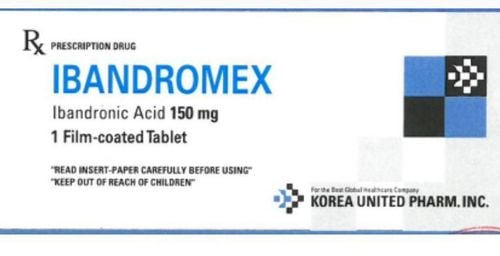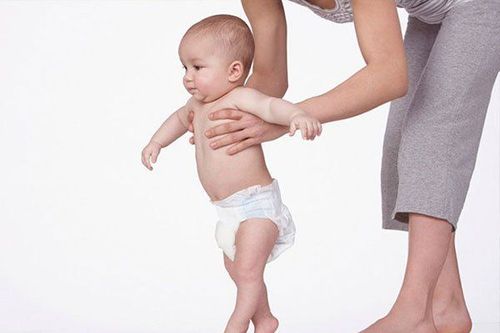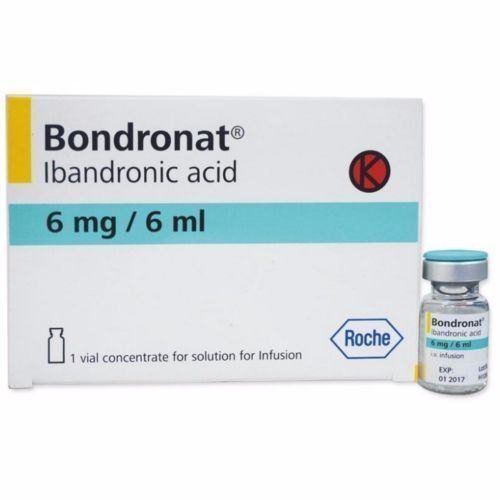This is an automatically translated article.
The fact that children often strain themselves makes many parents worry. However, this phenomenon is quite common in infants and almost every child will experience it with different causes and severity.
1. Why do children tend to stretch themselves?
There are many different reasons why children often strain their muscles. Among the more common are the following causes:
1.1. Children often strain their tendons due to external influences. External factors are often the first reason why children often strain their tendons. That impact can be noise, light or because the baby's bed is wet or uncomfortable. It can also be because the child is hungry, needs to urinate, wants to defecate.
In some cases, tight or wet clothes and diapers make babies uncomfortable. At this point, you need to thoroughly examine these causes before looking for other reasons why your child is often strained.
1.2. Children often strain muscles due to physiological factors of children It is very normal for infants or 1-year-old children to strain their muscles, because this may just be a natural physiological manifestation due to mental activity. The infant's musculature is not yet complete.
Normally, children will stretch and stiffen for about 3-5 minutes and then go away on their own. If while the child is stiff and crying constantly or accompanied by vomiting, even the baby is picky eaters, has a long delay in growth, you should take the child to the doctor as soon as possible.
Nervous system transmits signals to muscles, muscles respond by contracting. Muscle contraction creates force for us to perform the movement. The rhythmic coordination of the nervous system and the muscles will create movements that help us walk, stand, talk, laugh...
Disorders of muscle contraction may be due to psychological factors and this often happens. in susceptible children. Some cases of increased neuromuscular excitability appear when there are disturbances in some of the ions involved in the process of muscle contraction. Certain acute toxic conditions can also cause acute dystonia. It can also be caused by congenital dystonia or a genetic disorder.

Các tác nhân bên ngoài thường là lý do đầu tiên khiến trẻ hay lên gân gồng mình
1.3. Children often strain their muscles, which may be due to calcium deficiency. Calcium is an essential mineral for the development of infants, it has a great impact on the human body. In particular, calcium also plays a role in nerve transmission.
When children do not get enough calcium, the nervous system will work at a weaker capacity and may be disturbed. Therefore, the child's stiff body may be due to a nervous system disorder caused by calcium deficiency.
1.4. Some other diseases that cause children to strain themselves In addition to the above reasons, the phenomenon of children with hamstrings can be caused by a number of other diseases such as:
Skin diseases; Insect bites children cause itching and damage. Children's skin is very sensitive, so when there is a burning sensation or redness, the child will be very uncomfortable and react immediately.
2. Is it dangerous for children to stretch their muscles?
When young children, 9-month-olds or older children often strain themselves while sleeping or playing with the following signs, parents should take their children to a medical facility for examination:
For infants who often show difficulty sleeping, both during the day and at night, they cannot sleep for 15 -17 hours in the first 5-6 months. Older children often wake up many times at night, startle, toss and turn, have trouble sleeping, sweat a lot, vomit, lose hair, slow to gain weight. In this case, more than 90% of the causes are due to vitamin D deficiency in the womb and these are also the first manifestations of rickets in children.
3. What to do when children tend to strain themselves?
Understanding the condition and monitoring the process of strengthening the hamstrings of the child to find out the cause of the child's stiffness is important for you to do. You need to consider how long the child or stiff body will last. At the same time, does the child have any other signs or not and are there any more special signs?
If children often have spasticity in their limbs, you should pay attention to check for external factors. First, you should check to see if the child's sleeping place is comfortable, the light in the bedroom is okay, and whether there is any noise around the place where the child sleeps. You should review the type of diapers, clothes the child is using, whether it is itchy, hurting the baby's skin or not. If the child's stiffness continues, you should check the child's menu to see if it has provided enough nutrients for the child, especially calcium. You should also know how to balance your child's daily menu to ensure that other nutrients are not lacking. If the stiffness of the child continues to persist, along with the child has additional symptoms such as loud crying, vomiting, retardation, then you need to take your child to the doctor as soon as possible to find out the real cause. of this situation.

Trẻ hay lên gân gồng mình có thể do thiếu canxi
4. When do children need to see a doctor?
There are many parents who believe in folk tips and apply them to cure children's diseases while not finding out the exact cause of the disease. The methods to cure gongs in children are passed down orally in folklore, usually: Steaming, applying leaves, hot compresses, hair removal on the back,....
However, babies' skin is extremely immature for babies. So you need to remember that, do not use the above methods to cure stress to avoid bad effects on children. If you are concerned about your child's blushing, see a doctor instead of arbitrarily self-treating.
Children who often strain themselves due to hypocalcemia often have symptoms of increased neuromuscular excitability, or startle, restless sleep, then the child will be very susceptible to mental stimulation.
In particular, you need to pay attention to the skin folds located in the neck, private areas, groin, biceps, calves of the baby, ... to see if there is a red rash, infection or sores. If your child is startled, fussy, and has a red rash, diaper rash, you should take your child to see a doctor for appropriate support and advice. You can take your child to the Pediatrics Department at Vinmec International General Hospital for doctors to examine and treat.
Pediatrics Department - Vinmec International General Hospital is the address that many parents trust and choose to examine the diseases that infants and young children are susceptible to. Vinmec brings satisfaction to customers and is highly appreciated by industry experts by:
Gathering a team of leading pediatricians: including leading experts with high professional qualifications ( professor, associate professor, doctorate, master), experienced, worked at major hospitals such as Bach Mai, 108... The doctors are well-trained, professional, conscientious - understanding and understanding young psychology. Besides domestic pediatricians, the Department of Pediatrics also has the participation of foreign experts (Japan, Singapore, Australia, USA) who are always pioneers in applying the latest and most effective treatment regimens. . Comprehensive services: In the field of Pediatrics, Vinmec provides a series of continuous medical examination and treatment services from Newborn to Pediatric and Vaccine,... according to international standards to help parents take care of their baby's health from birth to childhood. Advanced techniques: Vinmec has successfully deployed many specialized techniques to make the treatment of difficult diseases in Pediatrics more effective: neurosurgery - skull surgery, stem cell transplantation blood in cancer treatment. Professional care: In addition to understanding children's psychology, Vinmec also pays special attention to the children's play space, helping them to play comfortably and get used to the hospital's environment, cooperate in treatment, improve the efficiency of medical treatment.
Please dial HOTLINE for more information or register for an appointment HERE. Download MyVinmec app to make appointments faster and to manage your bookings easily.













